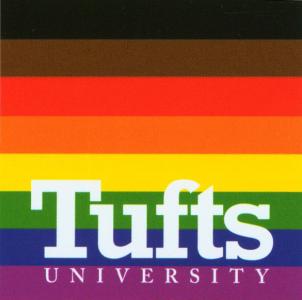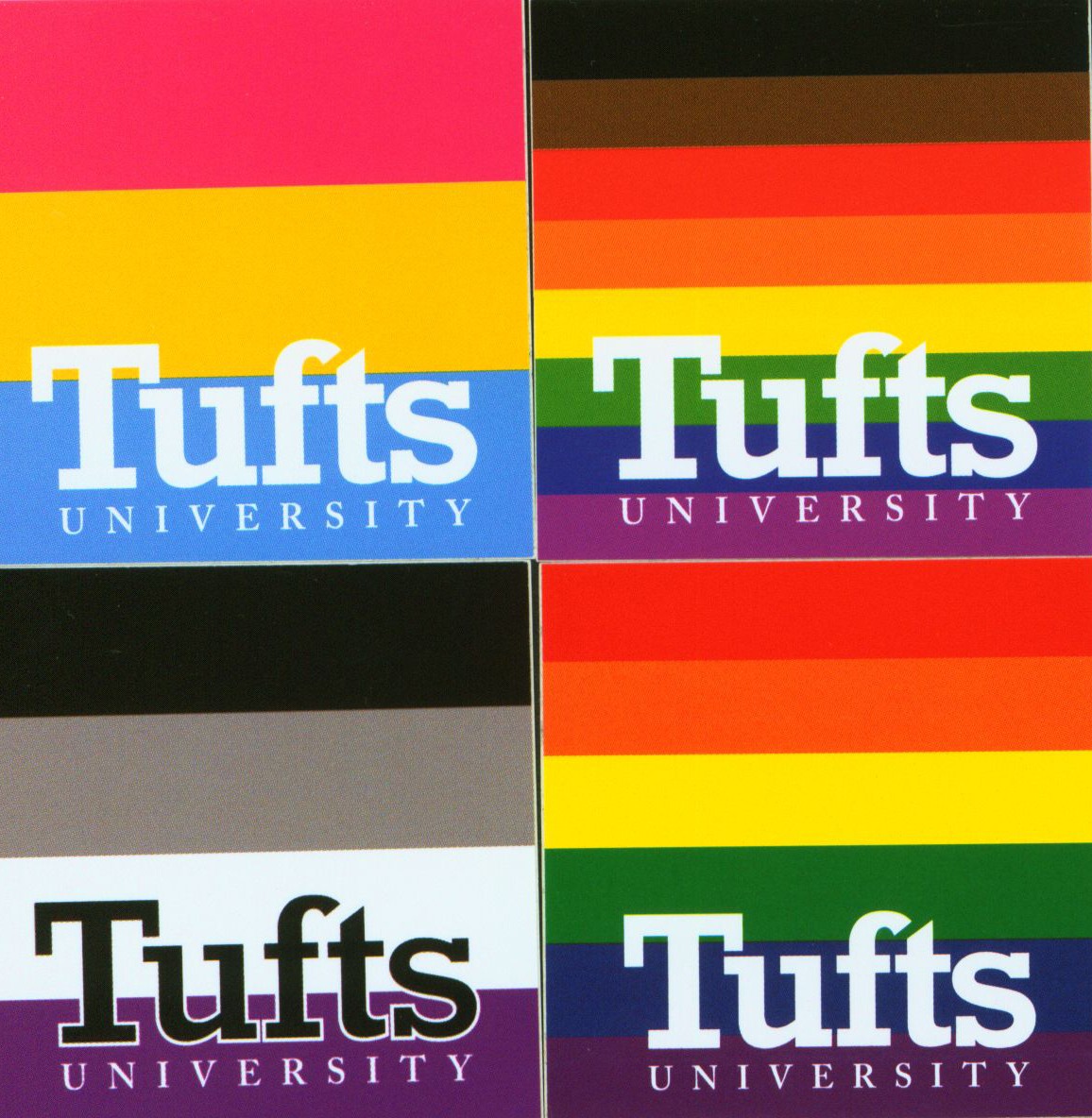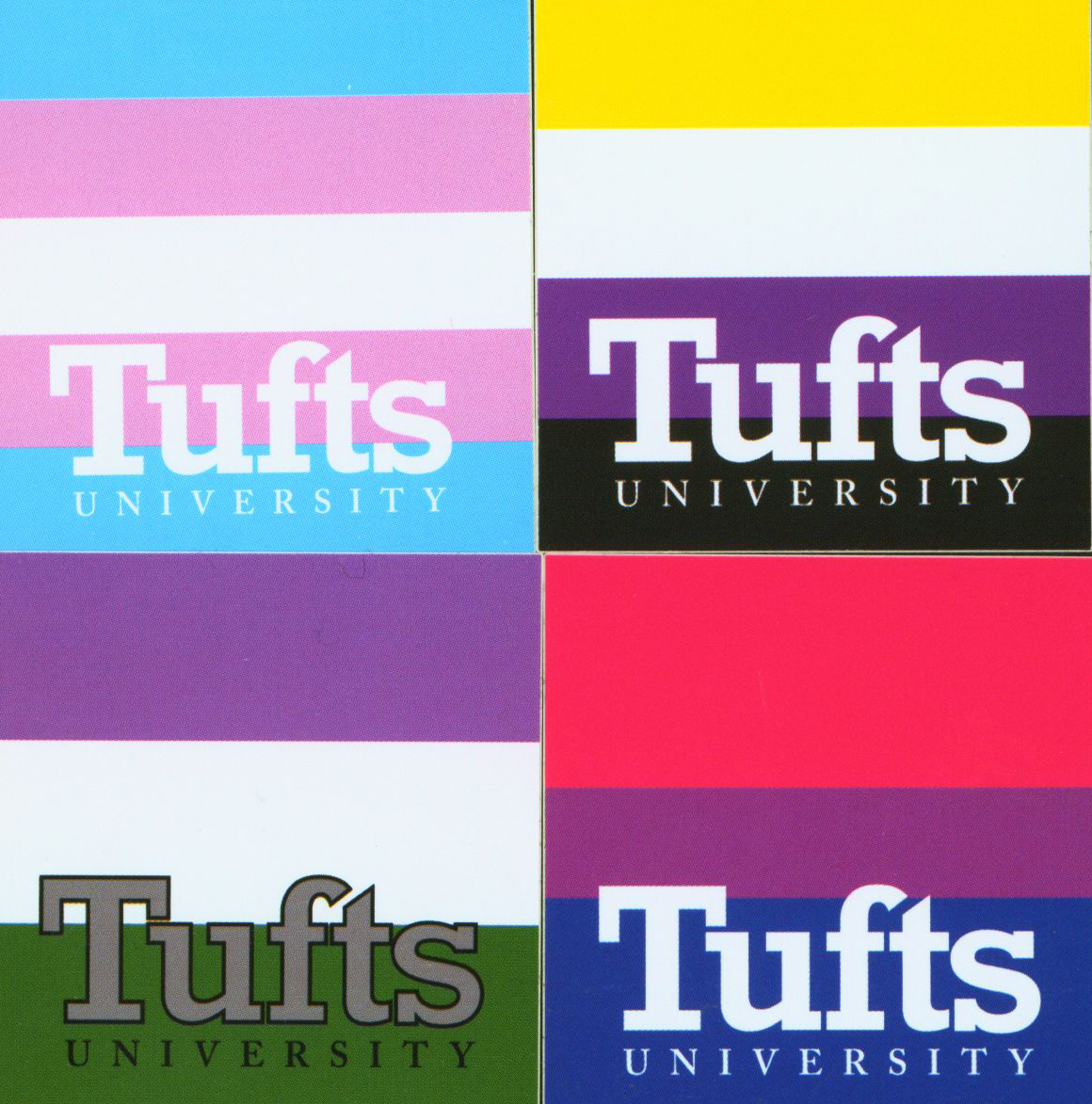
The Lesbian, Gay, Bisexual and Transgender (LGBT) Center Records provide valuable documentation of the center’s management, activities, and impact on the Tufts community. The collection includes administrative records of the organization as well as promotional materials, historical research of the queer community at tufts, and web crawls of the LGBT center’s website. The organization promotes LGBT rights, raises awareness about issues facing this community, and provides a safe space for LGBT people at Tufts.
The center has existed in different iterations before it became the LGBT center that it is now. In 1972 the Tufts Gay Community (TGC) organization was formed to provide a space for gay and bisexual people to meet and support one another and to educate the university community about gay related issues. Although the term “lesbian” was not included in the group name until 1981, the TGC’s goal was to shed light on the issues facing the gay and lesbian community on campus. The group changed its name over the years to include more students who do not identify with normative sexual or gender identities. In 1992, with support from students, faculty and staff, Dean Bobbi Knable established the first Lesbian Gay and Bisexual (LGB) Resource Center at Tufts in Lewis Hall. It later changed its name to the Lesbian, Gay, Bisexual and Transgender Center and the center is part of the Group of Six, (later renamed to Division of Student Diversity and Inclusion) which includes the other identity resource centers at Tufts.
 In 1980 the TGC established the first “drop-in center” on campus in Curtis Hall. By October 1987, the drop-in center was moved to Hayes House and In September of 1988, Donna Penn was hired as the first coordinator to increase programming and support services. In September of 1988, Donna Penn was hired as the first coordinator to increase programming and support services.
In 1980 the TGC established the first “drop-in center” on campus in Curtis Hall. By October 1987, the drop-in center was moved to Hayes House and In September of 1988, Donna Penn was hired as the first coordinator to increase programming and support services. In September of 1988, Donna Penn was hired as the first coordinator to increase programming and support services.
In 1992, when the Lesbian Gay and Bisexual (LGB) Resource Center was established in Lewis Hall, Heather Wishik replaced Donna Penn as administrator. After the holding of the first Pride on the Hill event in November 1992, the Center underwent a number of staff changes in the mid-1990s. This included the hiring of the first full-time director, Judith Brown in 1997. She was followed by Dona Yarbrough in 2003. In 2008 Tom Bourdon was named director of the center. He was followed up Nino Testa who was the director from 2014 to 2016. Hope Freeman then became the senior director of the LGBT center in 2017 and continues in that role. The associate director of the LGBT center as of 2023 is joel gutierrez.
Housing has always been an issue that this center prioritized in its advocacy. In September 1998, the Tufts Rainbow House was established to provide safe housing for LGBT people on campus in light of the high number of bias incidents that occurred in residence halls. When Dona Yarbrough was hired as the LGBT Center Director, she began to push for a housing policy that would accommodate transgender students at Tufts. In the fall of 2004, Yarbrough’s Transgender Housing Policy was adopted by Residential Life
The center’s work extends beyond safe and equitable housing to support Tuft’s queer population. In the 2004, the Center also began organizing its Queer Peer mentoring program. Upon the suggestion of Yarbrough, the administration accepted a revision to Tufts University non-discrimination policy by adding gender identity and expression in the fall of 2005. Beginning in 1997 and continuing until the COVID-19 pandemic, the LGBT Center has organized annual and statewide Safe Colleges Conferences, originally called "Sound Mind, Sound Body, Sound Off." The conferences include a keynote speaker and workshops created by staff and organizations, both from campus and off-campus.
The materials in the collection tell the story of the administrative changes in the department as well as the initiatives and programs that the center has launched. The materials include office records, newsletters, newspaper clippings, photographs, slides, event posters, publications, reports, web crawls, digital media, and promotional materials, including buttons, magnets, pins, stickers, t-shirts, a blanket, and graduation tassels, related to the history and activities of the Lesbian, Gay, Bisexual and Transgender Center at Tufts University. The bulk of the material dates from 1989 to 2007. Photographs in the collection are restricted for 75 years to protect the privacy of individuals depicted in the photos.
department as well as the initiatives and programs that the center has launched. The materials include office records, newsletters, newspaper clippings, photographs, slides, event posters, publications, reports, web crawls, digital media, and promotional materials, including buttons, magnets, pins, stickers, t-shirts, a blanket, and graduation tassels, related to the history and activities of the Lesbian, Gay, Bisexual and Transgender Center at Tufts University. The bulk of the material dates from 1989 to 2007. Photographs in the collection are restricted for 75 years to protect the privacy of individuals depicted in the photos.
The office files in the LGBT Center Records include administrative records, photographs of events and community members, event information, newspaper clippings, newsletters, and educational materials. 
Materials from Tufts faculty members Jonathan Strong and Jeanne Penvenne related to the LGBT Faculty Staff Caucus are also included in this part of the collection. These materials would help a researcher who was interested in the history of queer organization at Tufts university. The newspaper clippings and reports are a record of events relating to LGBTQIA+ issues at Tufts from the late 1980s through the mid 2000s. Through the event posters, publications, and promotional materials a researcher can learn what issues the center focused on throughout its history and see how the language and central issues in queer advocacy evolved over time.
The LGBT Center records also include materials relating to the Tufts Queer History Project. This began as a summer scholars research project in 2006 focusing on recording landmark events in queer history at tufts starting in the 1969-1970 school year. This timeline is still being added to by students and researchers.
The Promotional materials in the LGBT center records include posters, rally signs, and ephemera (non-paper objects) like pins, t-shirts, a blanket, and a graduation tassel. The LGBT Center records also contain web crawls that have recorded the center’s website at various dates from 2015 through 2020.
signs, and ephemera (non-paper objects) like pins, t-shirts, a blanket, and a graduation tassel. The LGBT Center records also contain web crawls that have recorded the center’s website at various dates from 2015 through 2020.
The LGBT Center Records tell the story of the LGBTQAI+ experience at Tufts University. The center is currently located at Bolles House, 226 College Avenue on the Medford campus. For more information about the current work of the center, visit their website.







